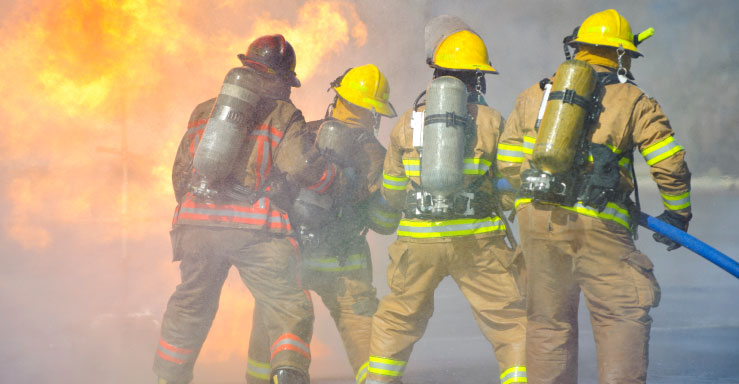- Two electrical fires kept Tallahassee Fire Department busy Monday night into Tuesday morning.
- One of the fires killed a dog.
- Read the news release from TFD below about the dangers of electrical fires and how to prevent them.
On January 15, at 8:50 p.m., the Tallahassee Fire Department (TFD) was dispatched to a commercial building fire located in the 1300 block of North Monroe Street. TFD crews arrived on scene and found smoke coming from a single-story structure. TFD personnel quickly made entry into the building to extinguish the fire and search for any occupants. All occupants were out of the structure and TFD crews were able to quickly extinguish the fire. There were no injuries reported on scene. The cause of the fire appears to be electrical.
The Tallahassee Fire Department was assisted on scene by the Tallahassee Police Department, Leon County EMS and the City of Tallahassee Utilities.
On January 16, at 3:57 a.m., TFD was dispatched to a multi-residential structure fire located in the 1800 block of Kelly Street. TFD crews arrived on scene and found heavy smoke and fire coming from a single-story duplex. TFD crews immediately began to extinguish the fire and search for any possible occupants still inside the residences. All people were out of the structure. One dog did die on scene while TFD personnel were able to rescue another dog from the residence. The cause of the fire appears to be electrical.
The Tallahassee Fire Department was assisted on scene by the Tallahassee Police Department, Leon County EMS, Leon County Sheriff’s Office and the City of Tallahassee Utilities. The Red Cross was called to the scene to assist the residents.
The Tallahassee Fire Department emphasizes the importance of electrical safety and urges the community to stay alert in preventing such incidents.
Follow these tips to help reduce the risk of electrical fires:
- Have all electrical work done by a qualified electrician.Conduct regular inspections of your home’s electrical system.
- Avoid overloading electrical outlets and power strips.
- Check the condition of appliance cords regularly.
- Replace any frayed or damaged cords immediately.
- Do not run cords under rugs or furniture, as this can cause overheating.
- Limit the use of extension cords. They should only be used as a temporary solution, not as a permanent wiring method.
- Make sure that all receptacle outlets and switches have faceplates.
- Use space heaters with caution. Keep them at least three feet away from flammable materials and turn them off when leaving the room or going to bed. Follow the manufacturer’s guidelines for proper usage.
- Use a light bulb with the right number of watts. There should be a sticker that indicates the right number of watts.
Remember to check your smoke alarms to make sure they are in proper working condition, as smoke alarms can provide the early warning necessary to escape a deadly fire. A properly installed and maintained smoke alarm can alert you and your family to a fire 24 hours a day, seven days a week.
If you’ve endured the trauma of a fire accident, Ovadia Law Group stands ready to support you. Call us at 1-800-674-9396, and let our compassionate team guide you through the aftermath. We understand the devastation such incidents bring, and we’re committed to fighting for your rights. Ovadia Law Group will handle the legal complexities, navigate insurance matters, and work tirelessly to secure the compensation you deserve for recovery. Your well-being is our priority, and we stand as your advocates during this challenging time. Trust Ovadia Law Group to handle the intricacies of your case, allowing you to focus on rebuilding after a fire accident.
Source: wtxl





